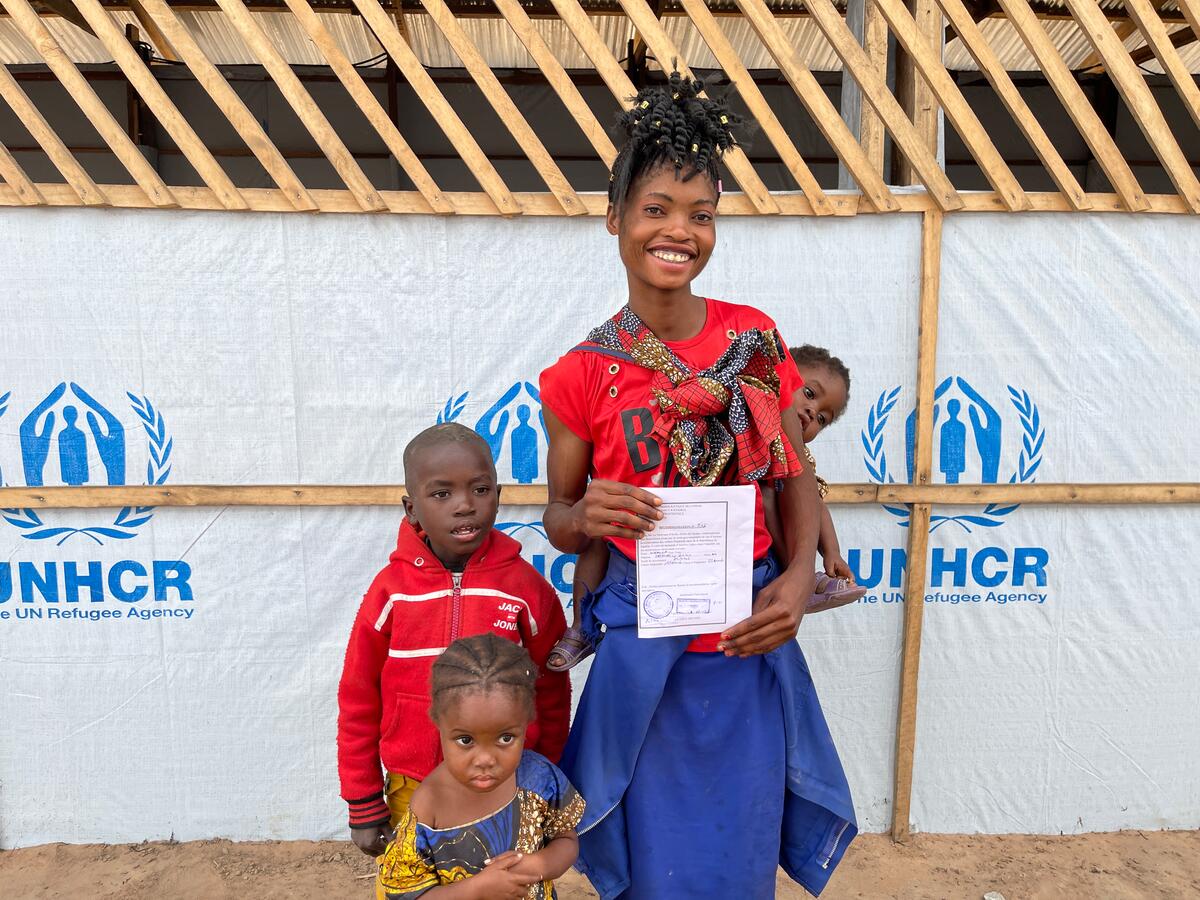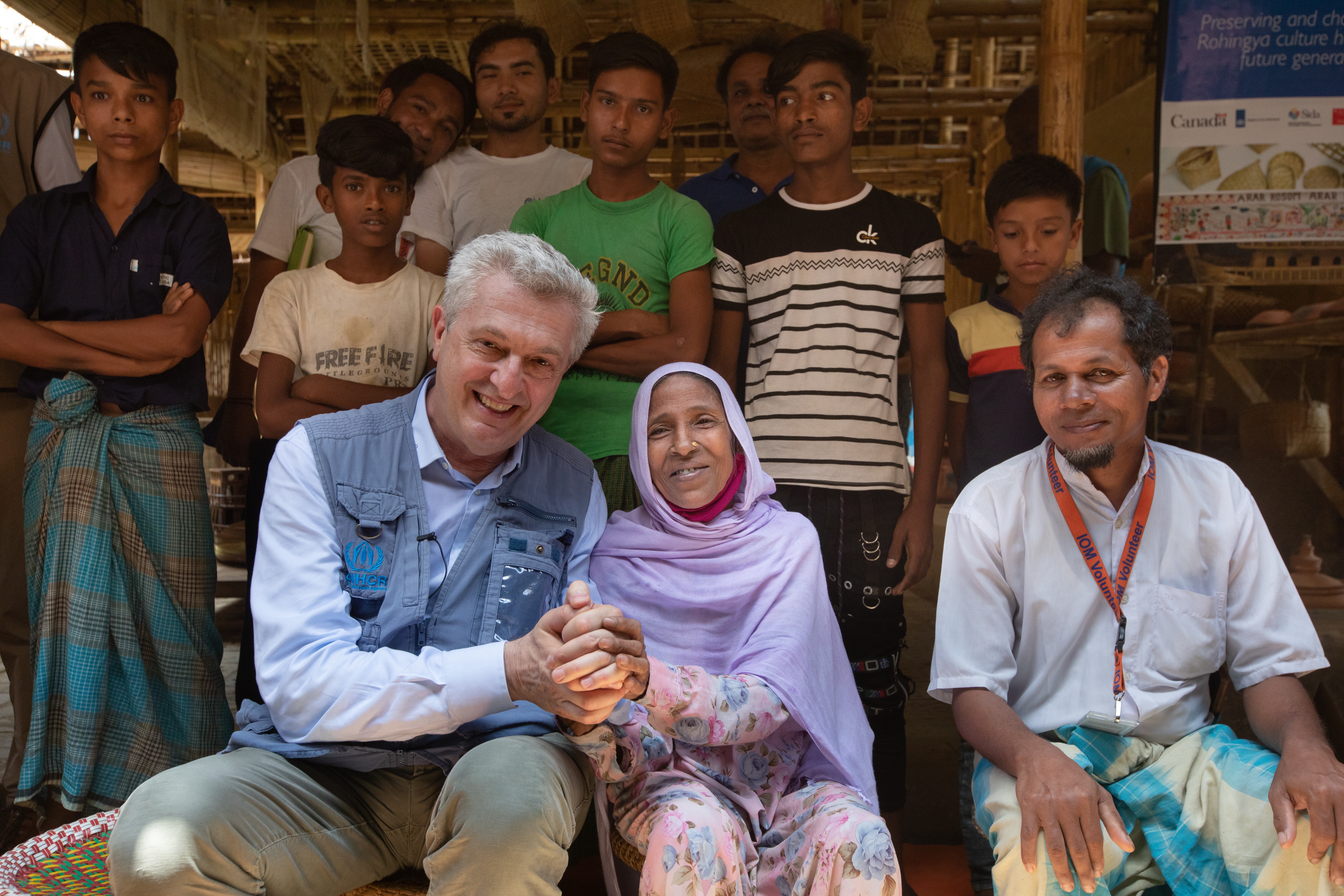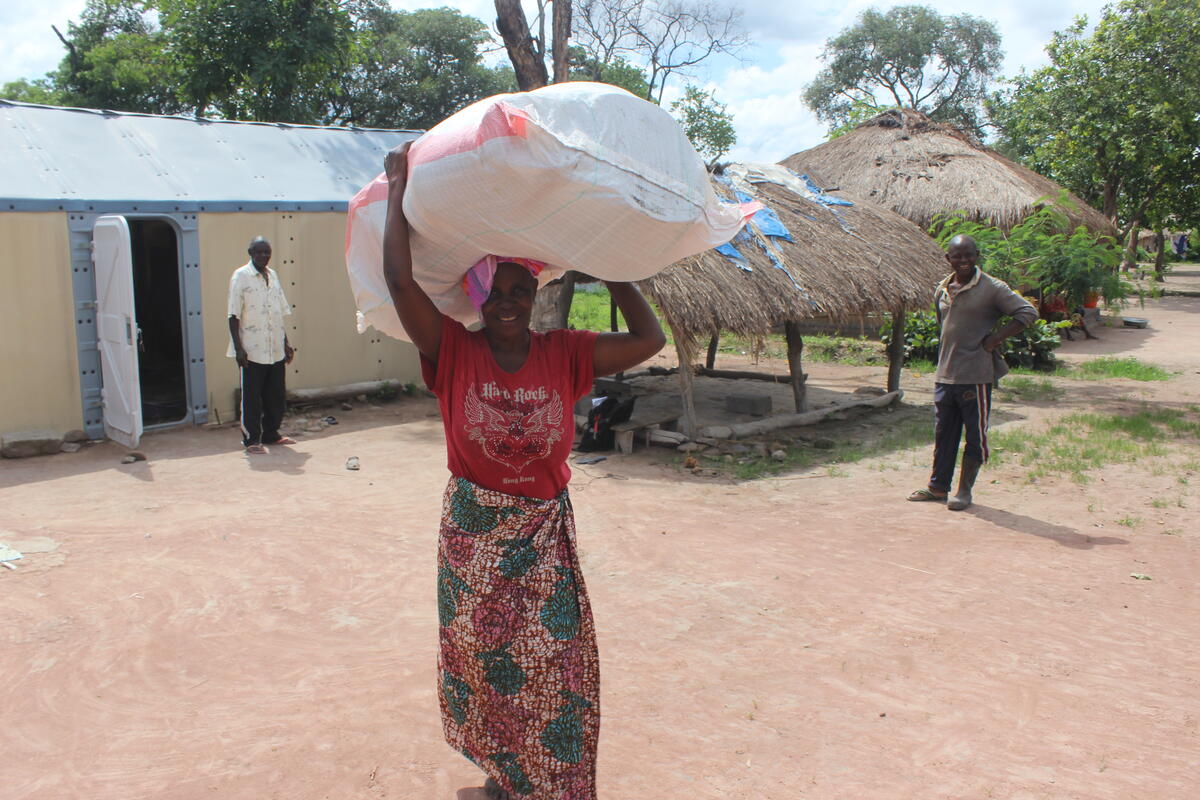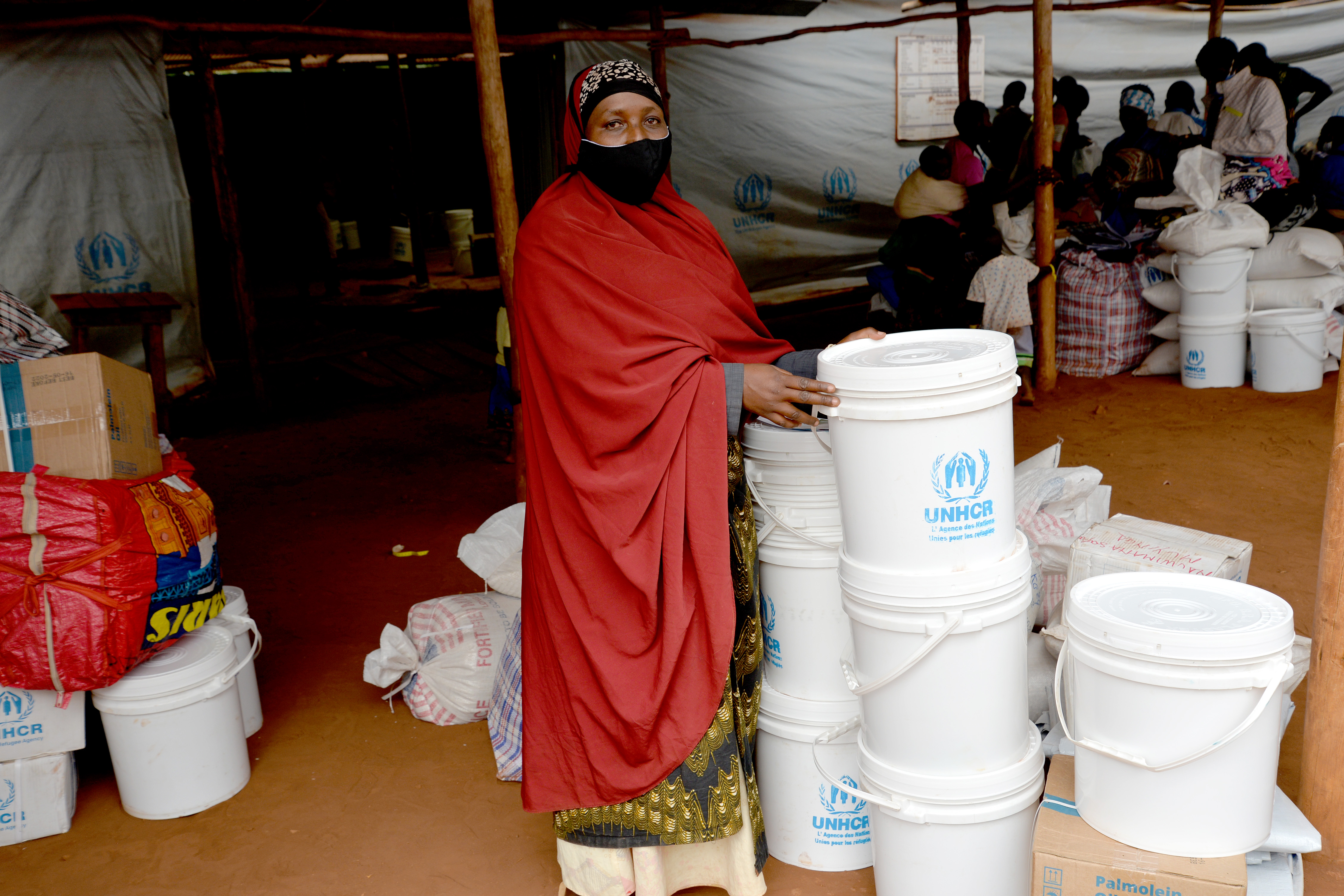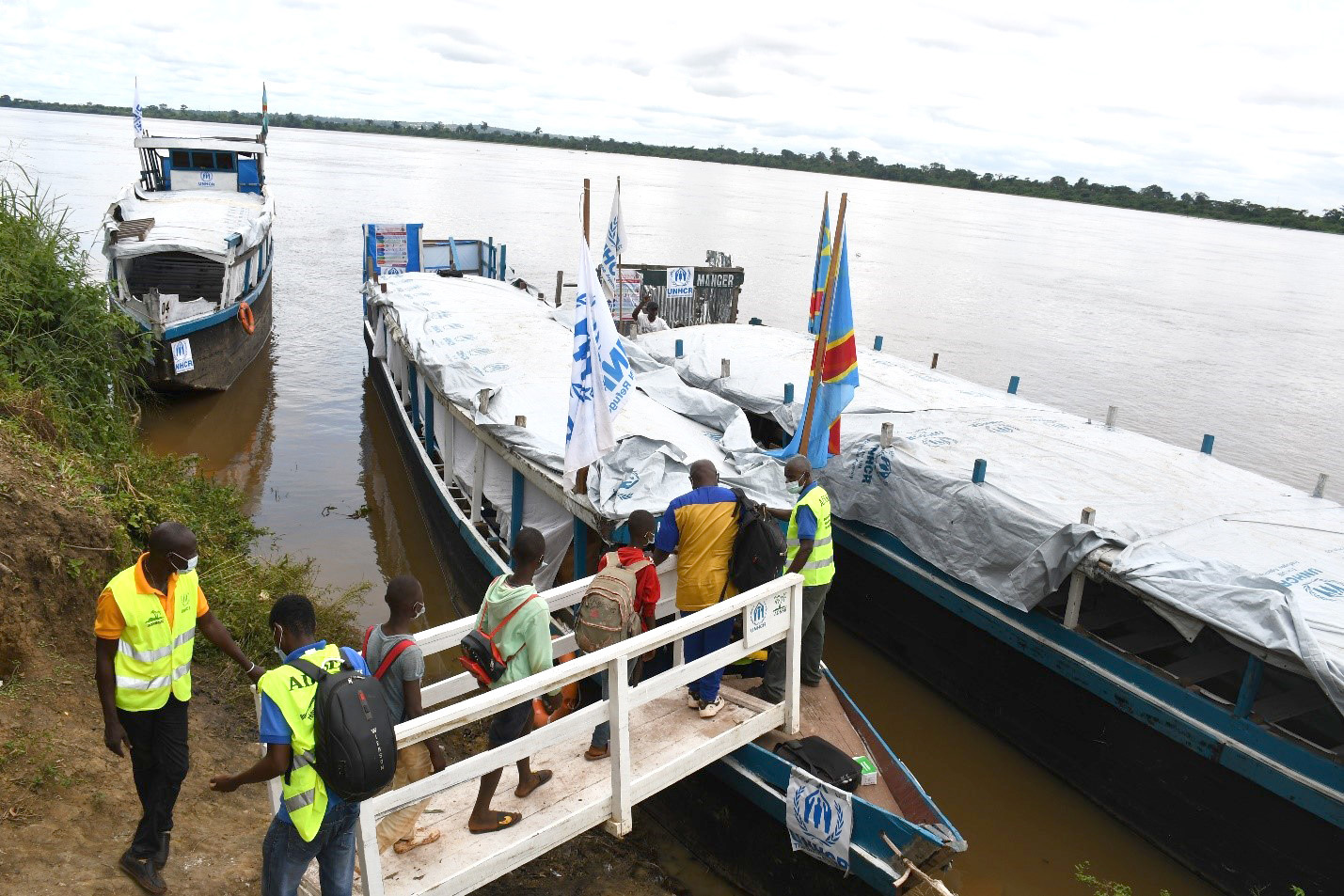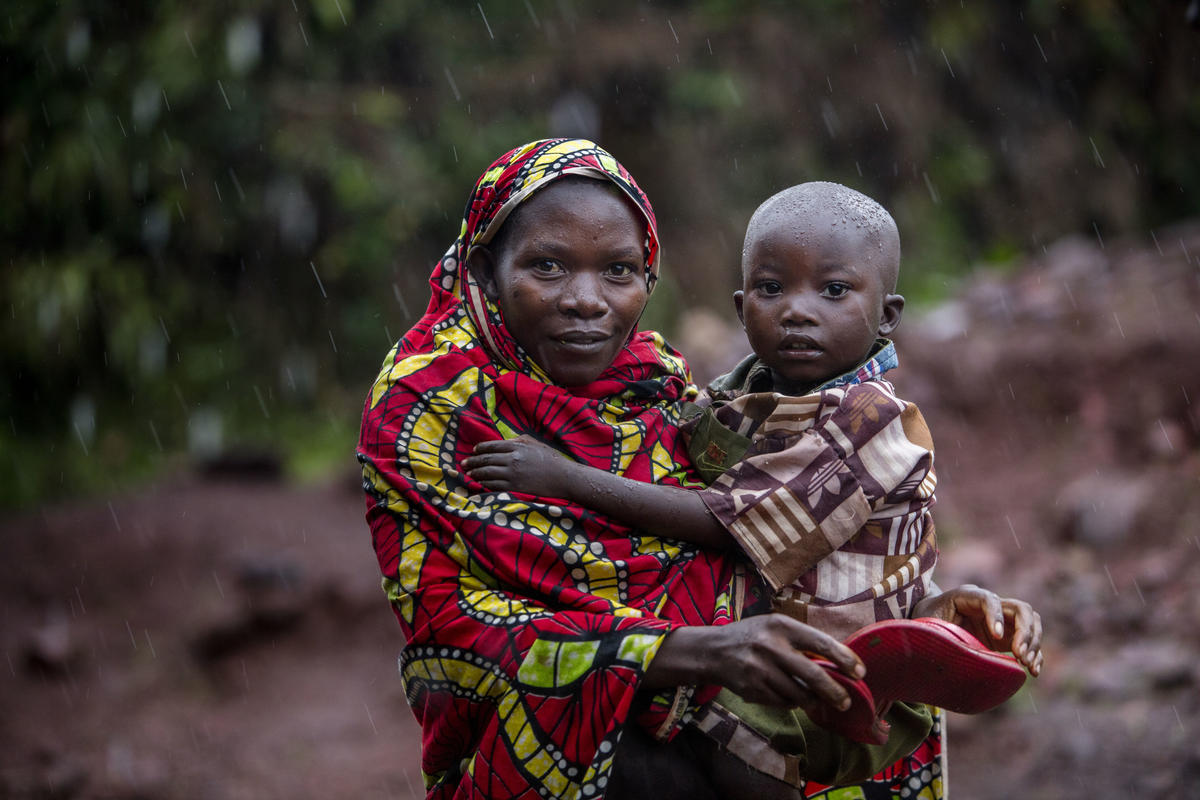Congolese refugees helped home as UNHCR programme accelerates
Congolese refugees helped home as UNHCR programme accelerates

KINSHASA, Democratic Republic of Congo, 8 August (UNHCR) - More than 11,000 Congolese refugees have returned to their home province this year as a UNHCR programme of voluntary repatriation picks up speed.
The operation, which began on 5 May, is expected by the end of the year to assist the return of some 49,000 Congolese who fled from Equateur Province of the Democratic Republic of Congo (DRC) to the neighbouring Republic of Congo (RoC) when ethnic clashes erupted in 2009. A further 32,000 are expected to return during the first half of 2013.
"Repatriation which began slowly is gradually reaching its cruising speed," said Geert Van de Casteele, head of the UNHCR office in Dongo in the DRC.
"If we can keep an average of 300 people per convoy, we hope during the month of August to repatriate between 8,000 and 9,000 people - that would be in a month almost what we had accomplished during the previous three months."
Some 143,000 Congolese had fled their villages for safety in neighbouring countries -- 123,000 in RoC and 20,000 in the Central African Republic - when clashes erupted between the Munzaya and Enyele groups over traditional fishing and farming rights.
An additional 100,000 Congolese were displaced inside Equateur province but most returned home when conditions improved. A few thousand refugees also returned on their own from the RoC.
But the remaining refugees in the RoC are in sites spread along more than 500 km of the Ubangi River. Water levels have not fully recovered from the dry season, presenting a major challenge for UNHCR's efforts to move supplies for the voluntary repatriation operation.
By 1 August, UNHCR had organised 42 convoys, carrying 10,596 refugees home. By 4 August, the total had risen to 11,199. During August UNHCR hopes to send 15 "organised" convoys, in which the UN refugee agency provides boats, and 17 "semi-organised" convoys, in which refugees arrange boats but also go to a UNHCR reception centre in Equateur Province.
Those returning assemble at a departure centre in the RoC, where assistance is provided.
"We need to ensure that refugees are able to travel on the river, that people living with chronic illnesses and other vulnerable groups are know and then they receive three months of medication to enable them to continue to heal," said Daniel Martin, head of the UNHCR office in Impfondo (RoC).
On arrival to the transit centre in DRC, UNHCR, its partner organisations and the government provide assistance to the returnees, including medical screening and registration. They stay for up to three days at the centre, receiving food and non-food items, educational material for school-age children, plus financial assistance for travel to their final destination.
UNHCR is also helping with reintegration in a region that lacks many facilities . A number of shelters have been built for the most vulnerable returning refugees. Two additional offices, in Buburu and Mbandaka in Equateur, are to be opened and will also assist as the repatriation should soon cover refugees who fled to the Central African Republic.
By Simon Englebert Lubuku in Kinshasa


